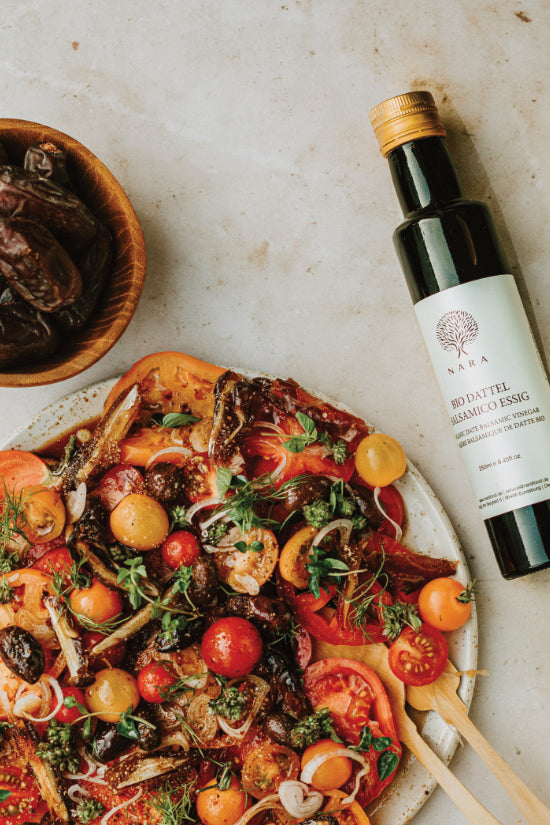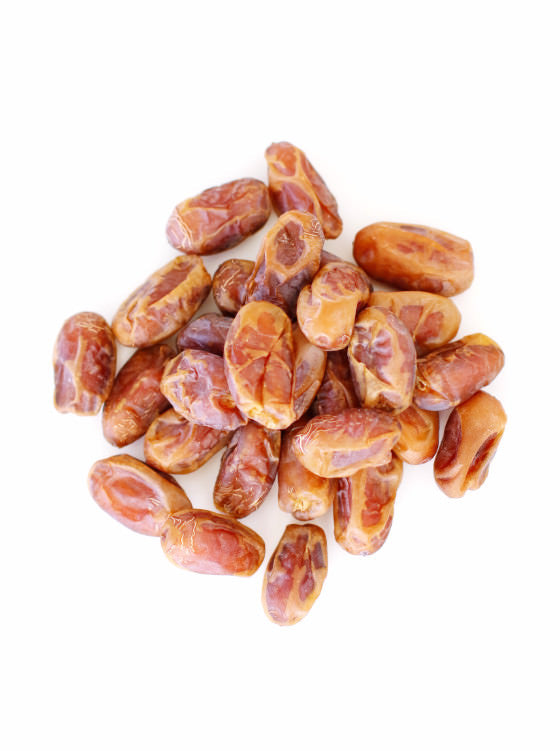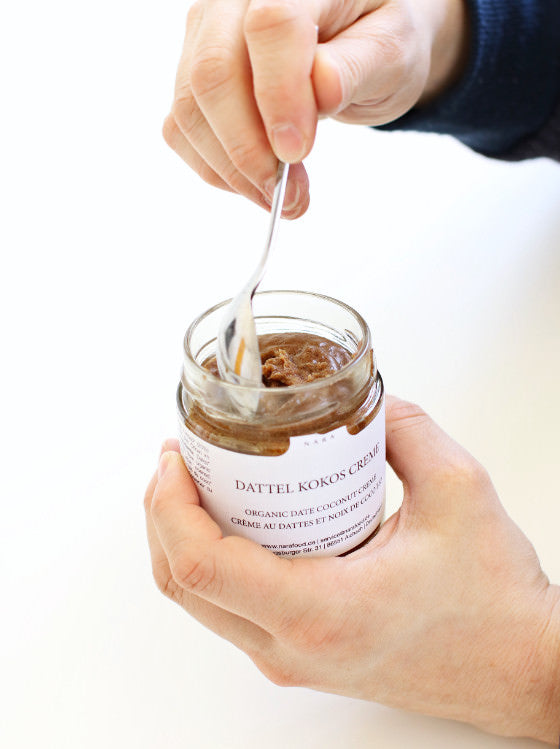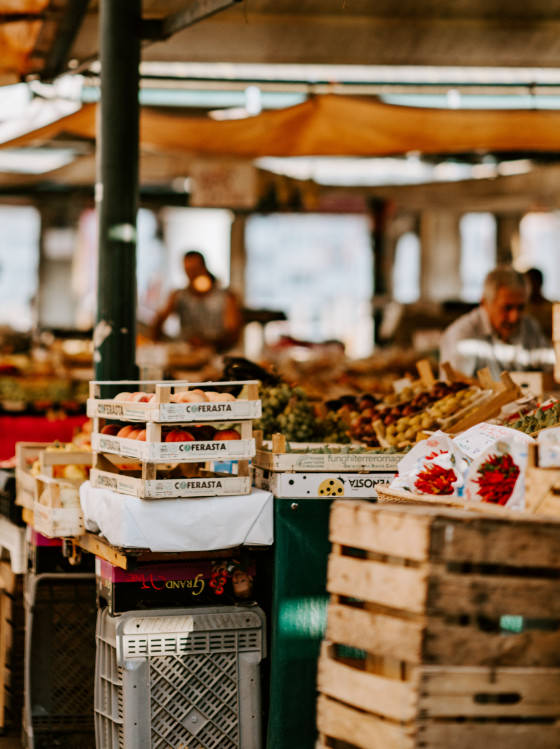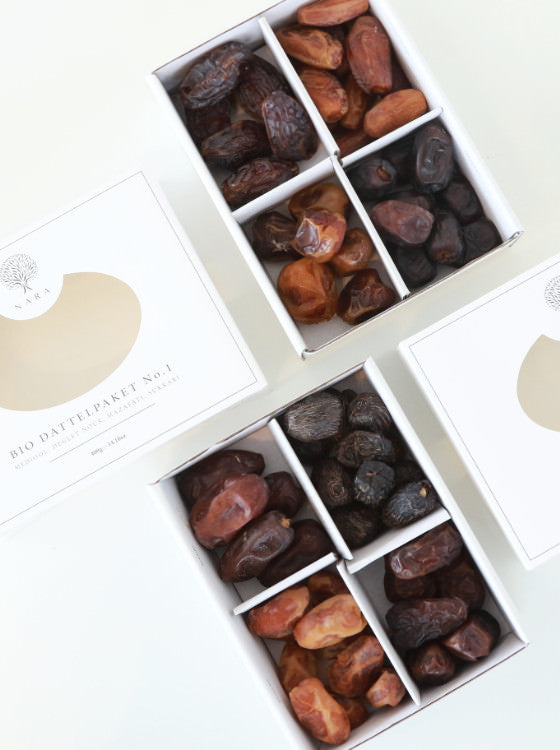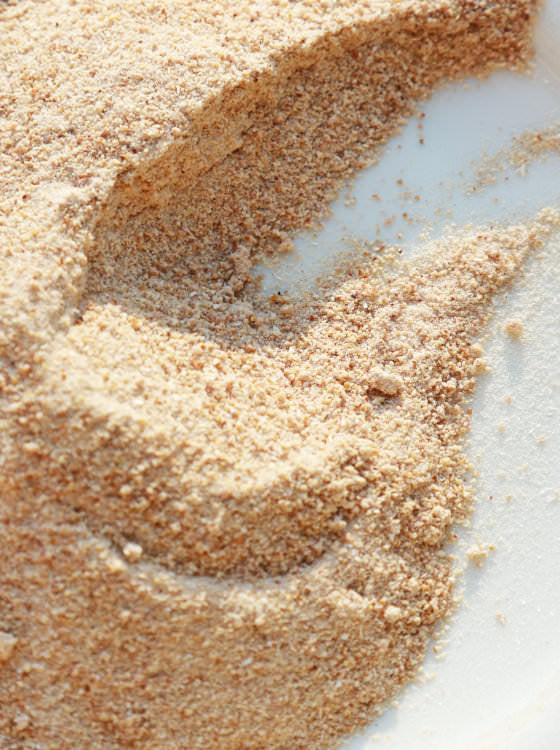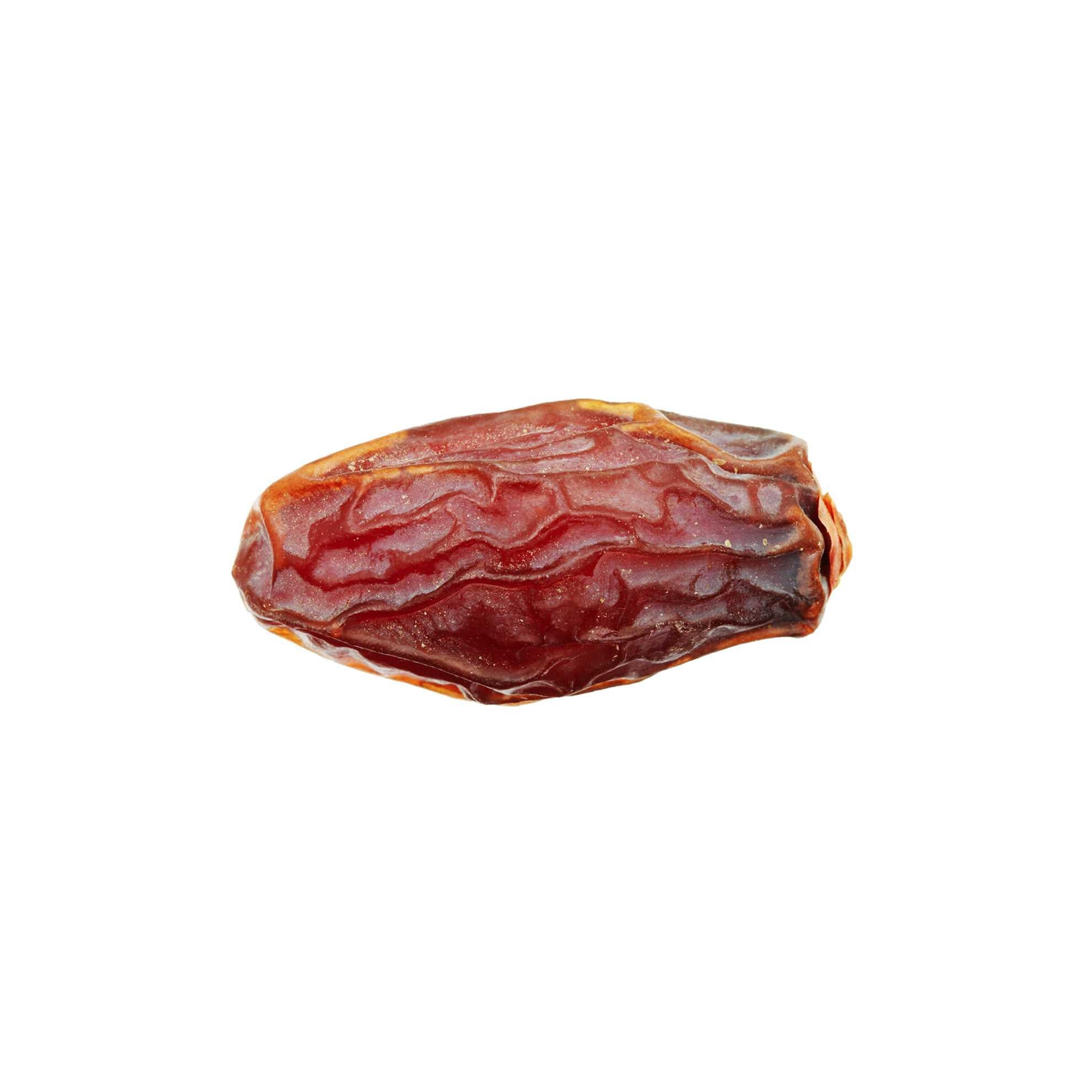
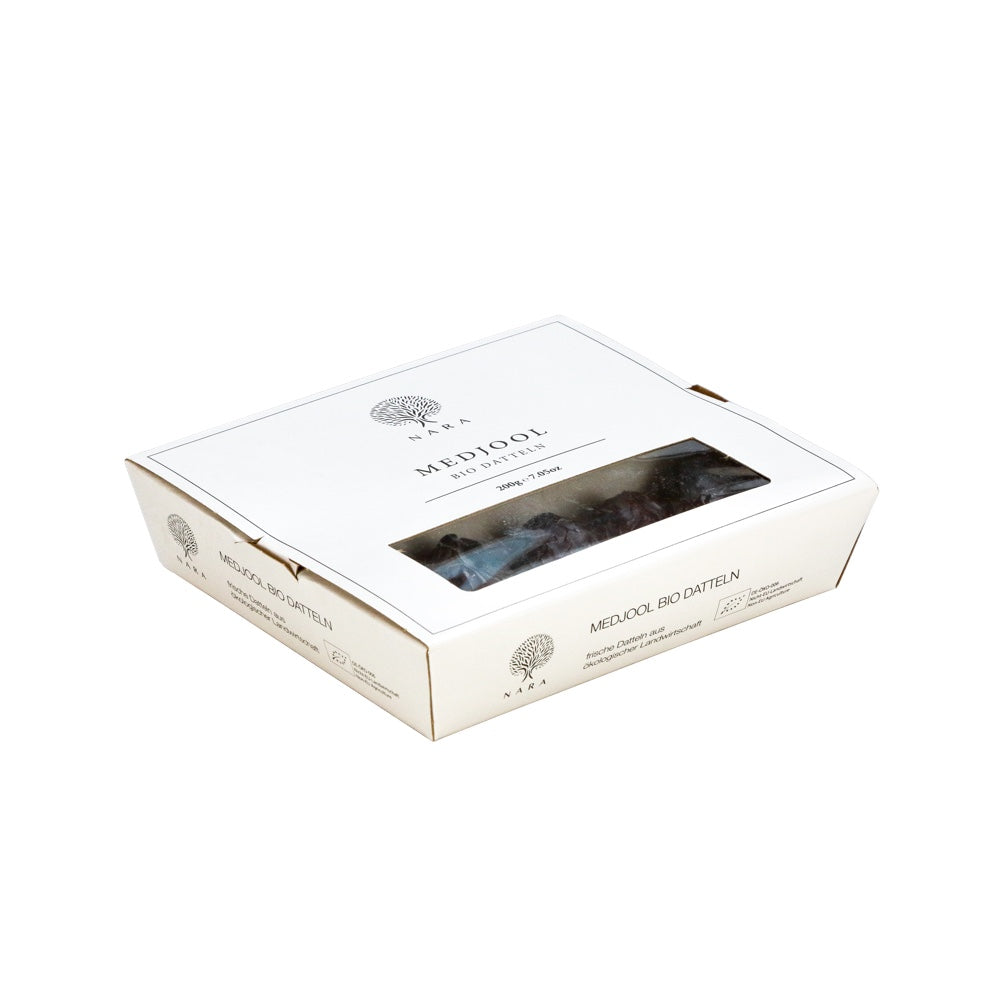
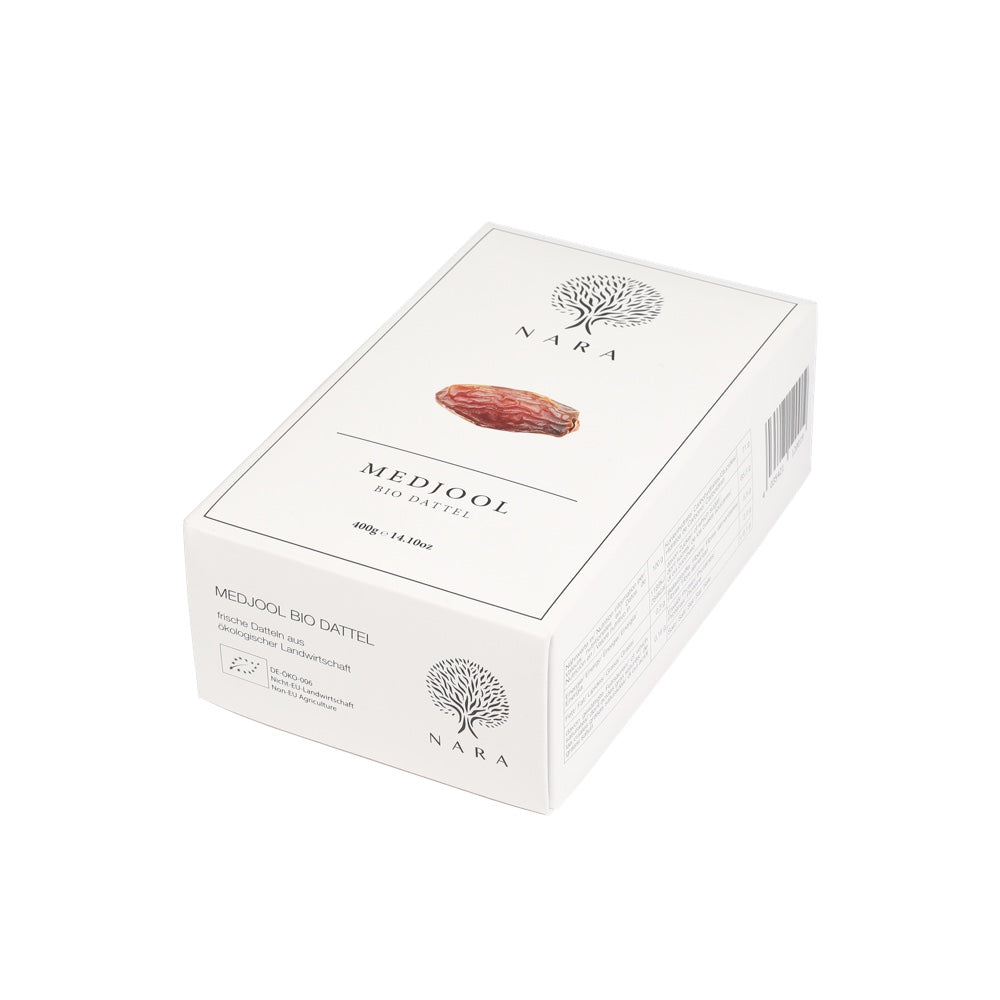
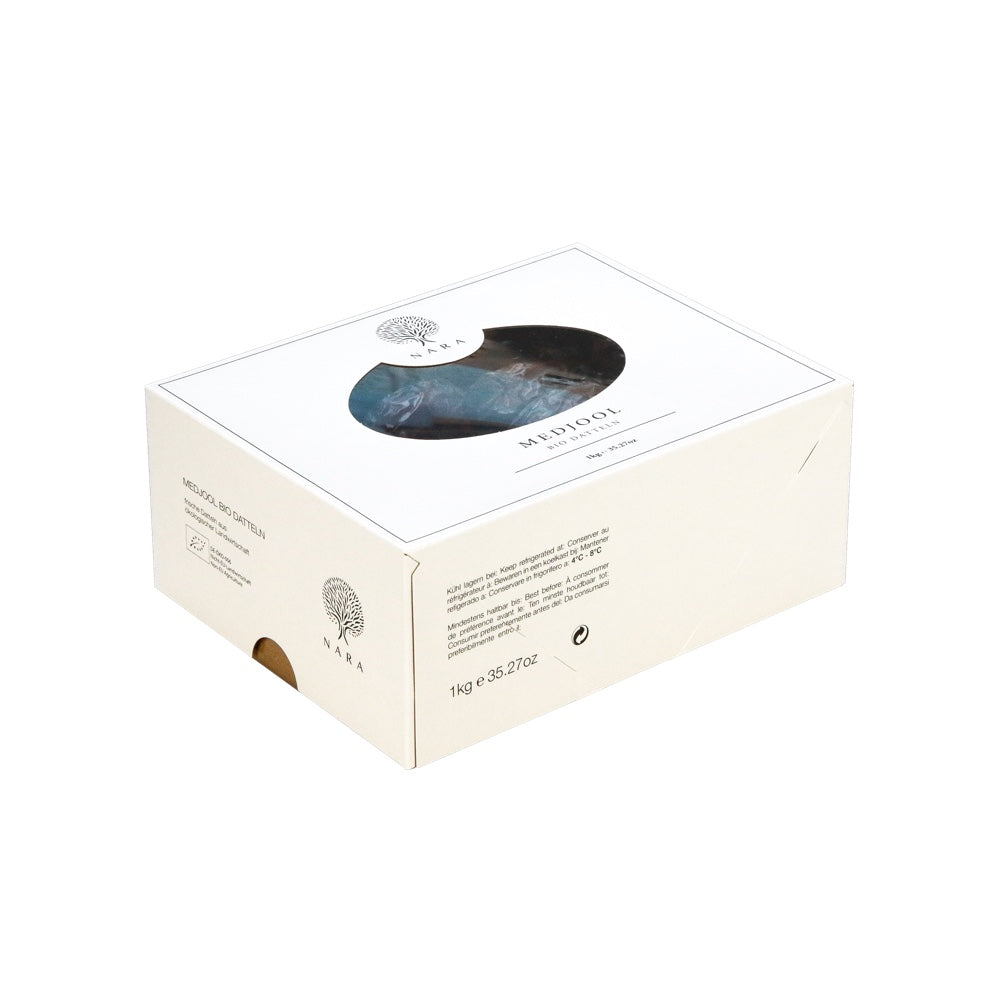
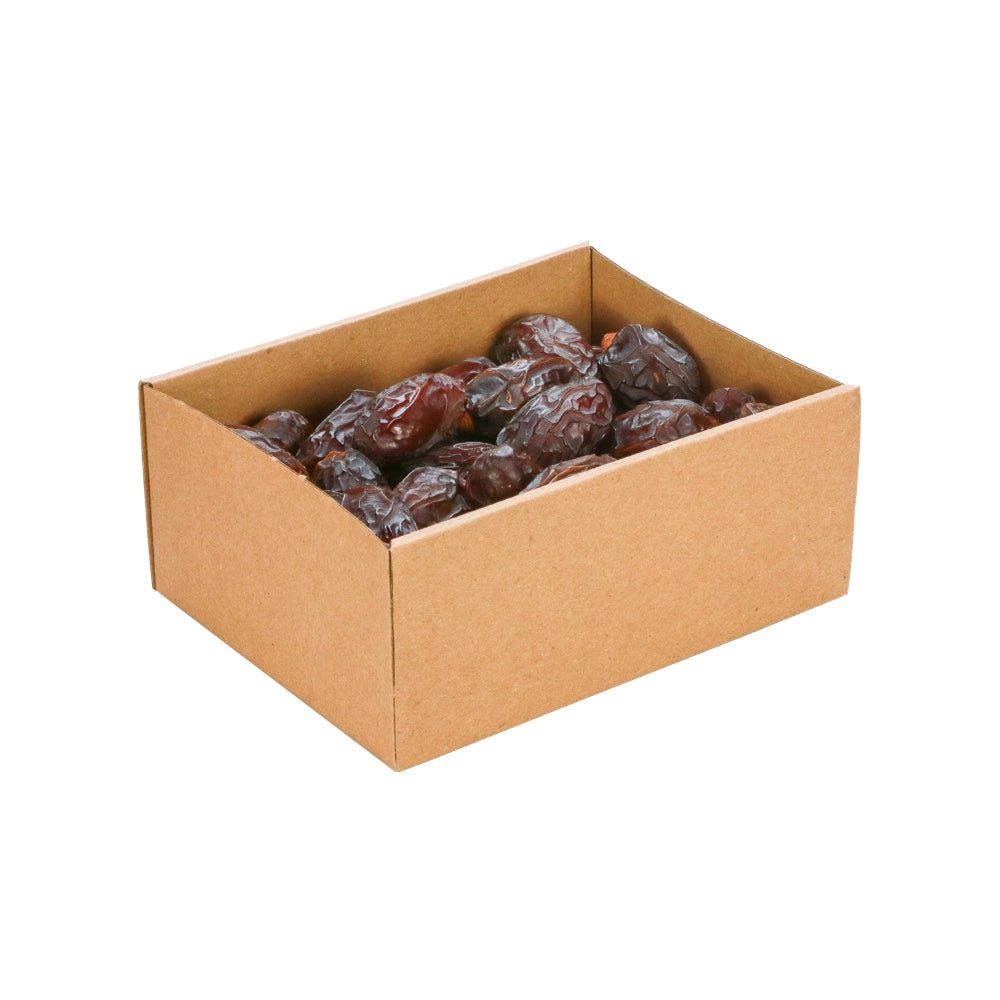
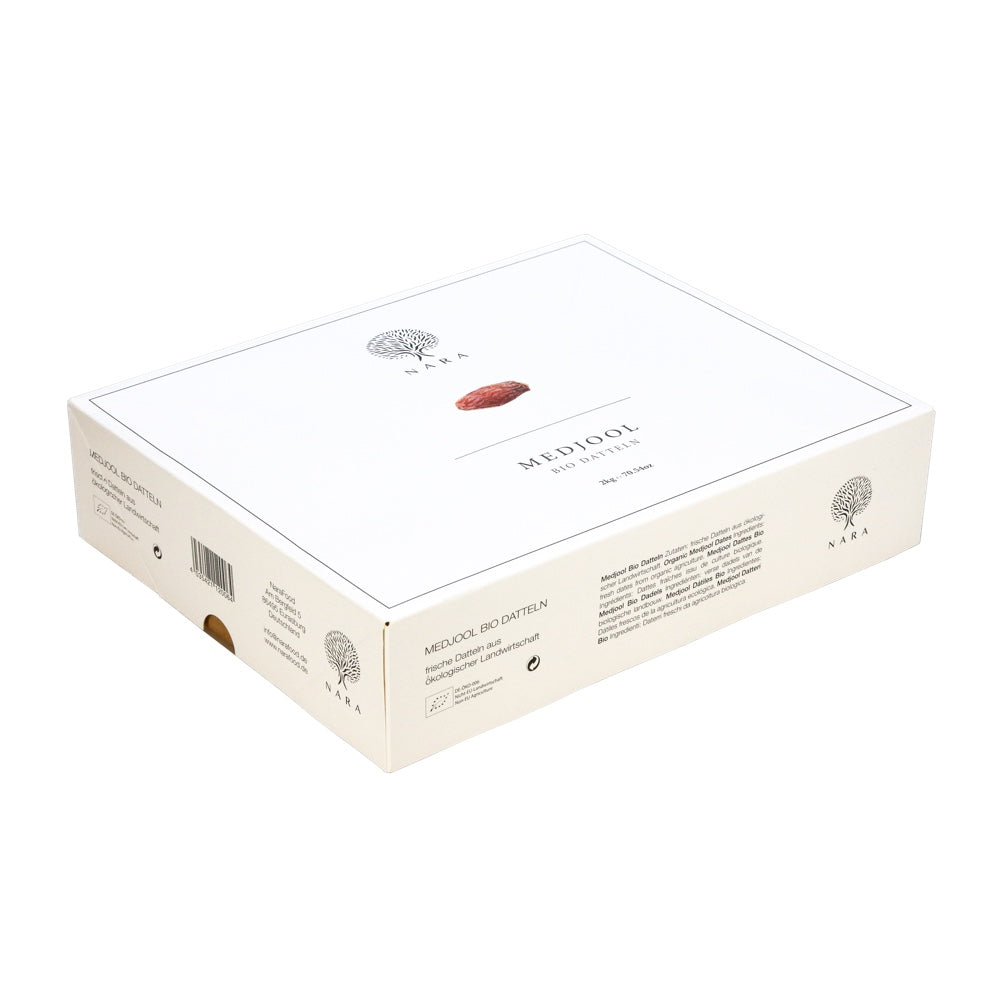
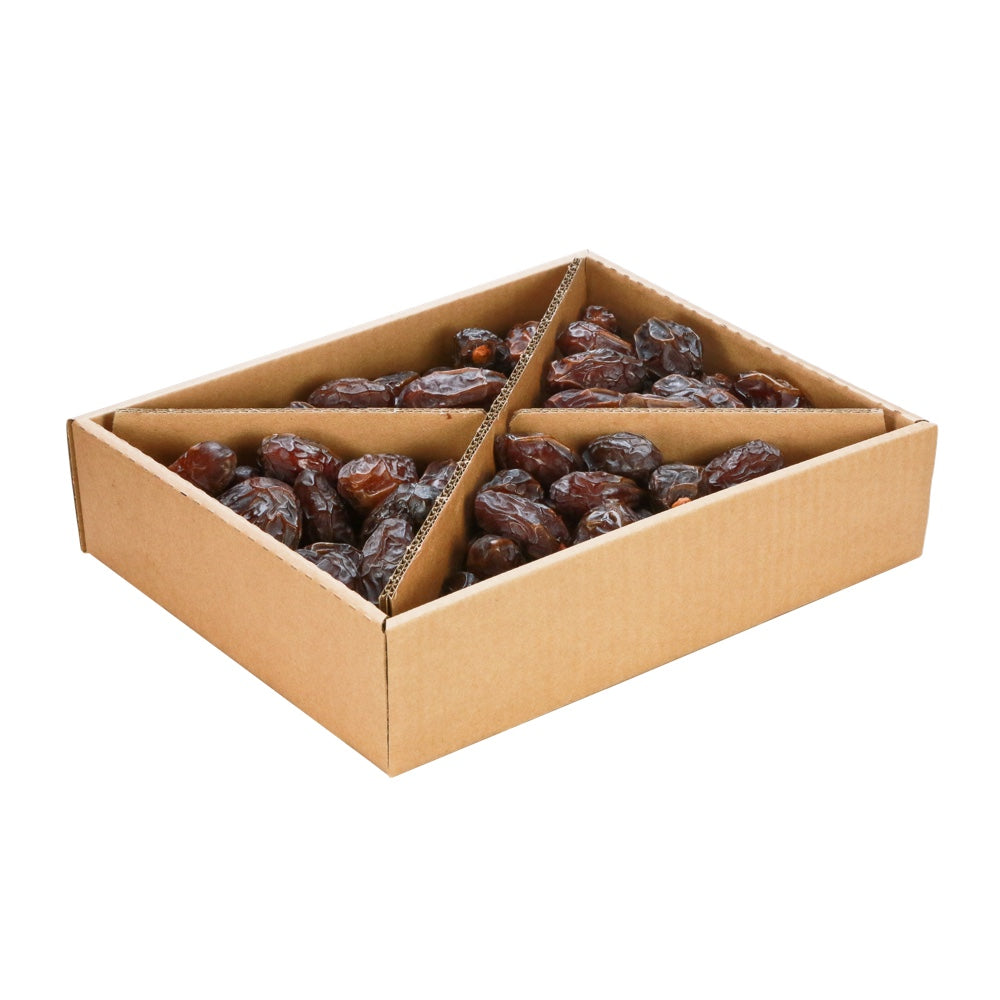
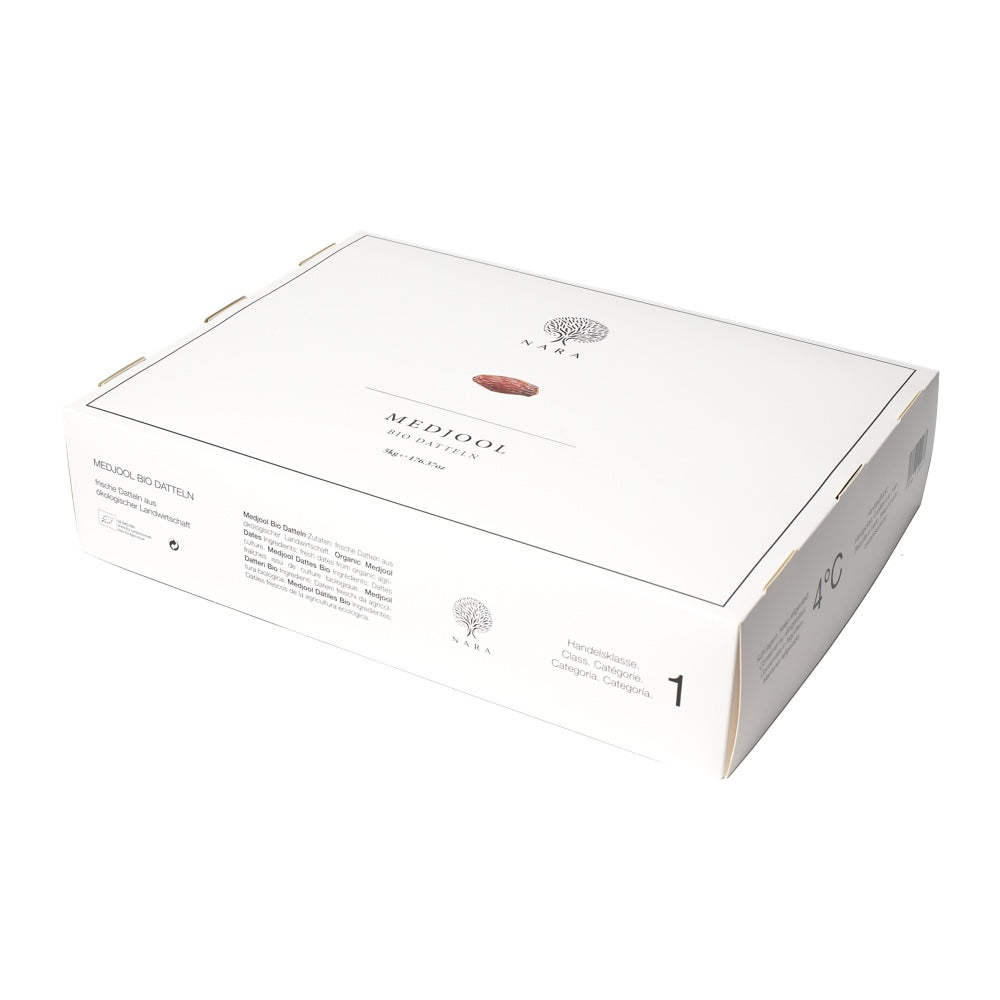
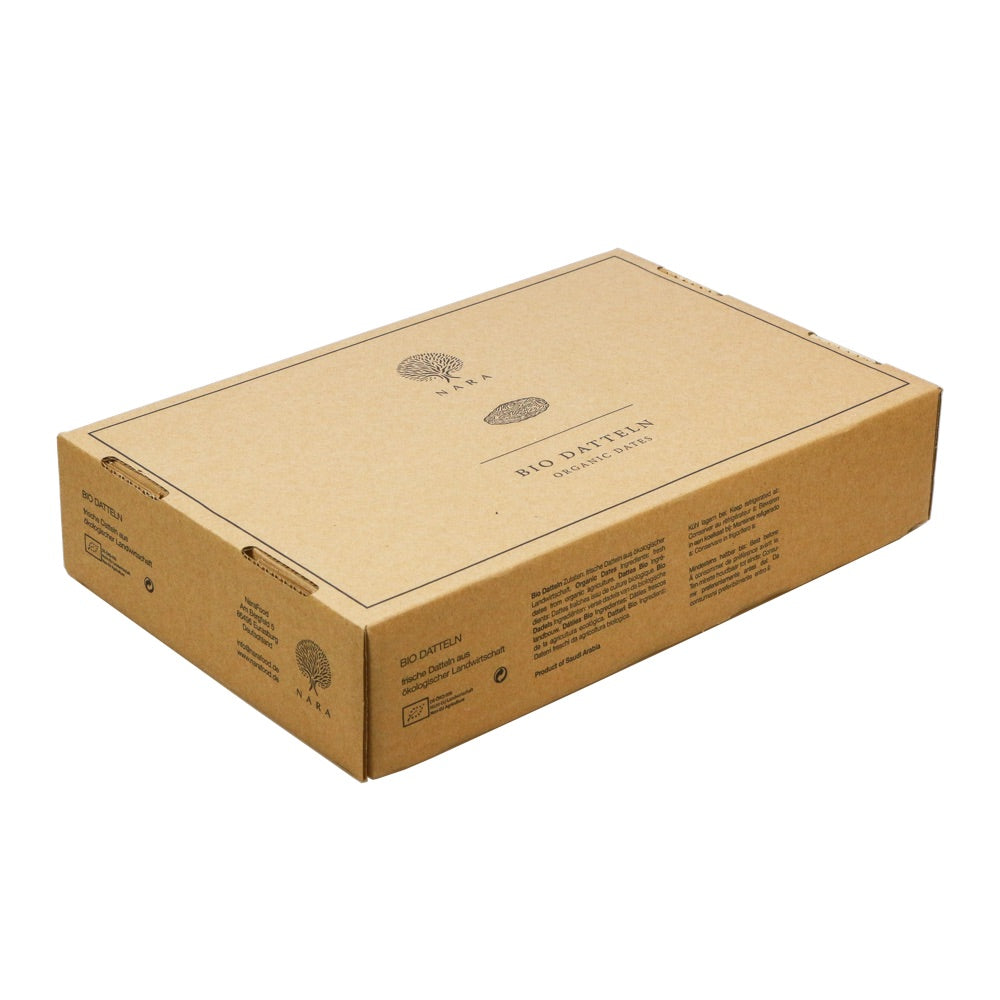
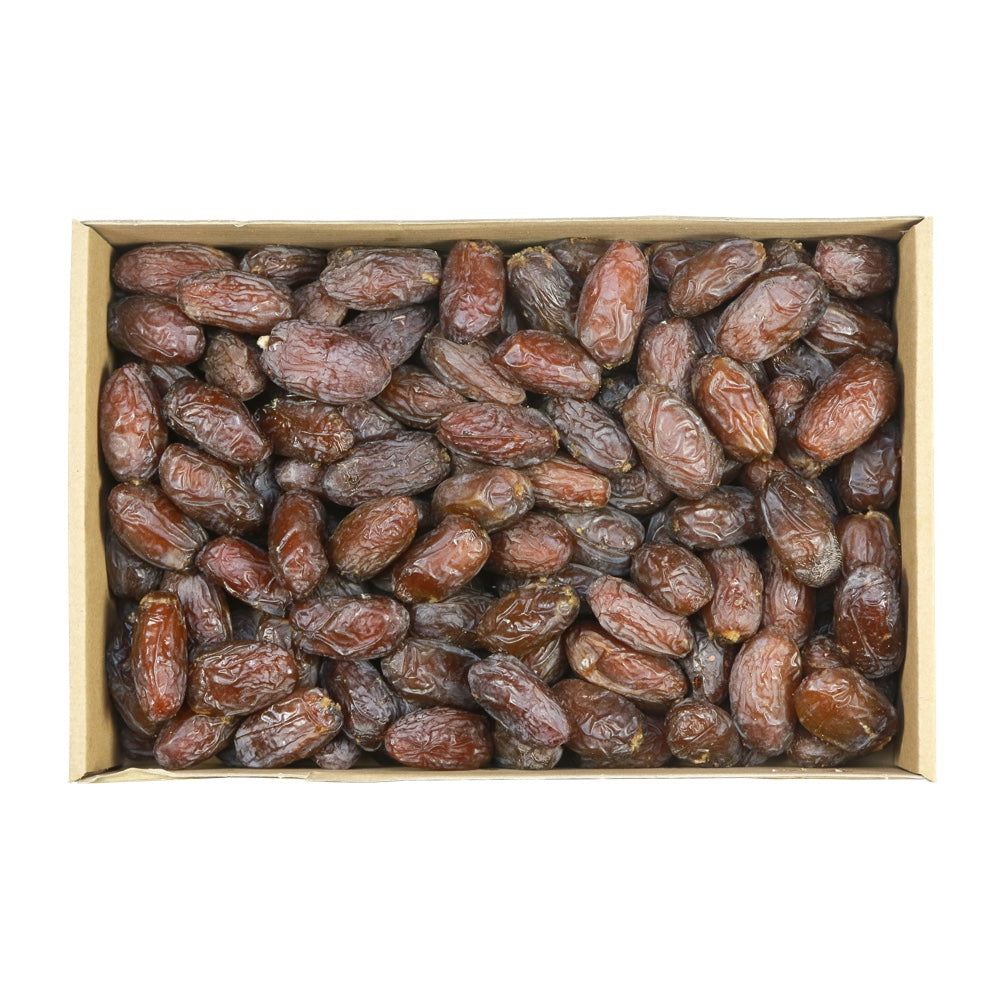
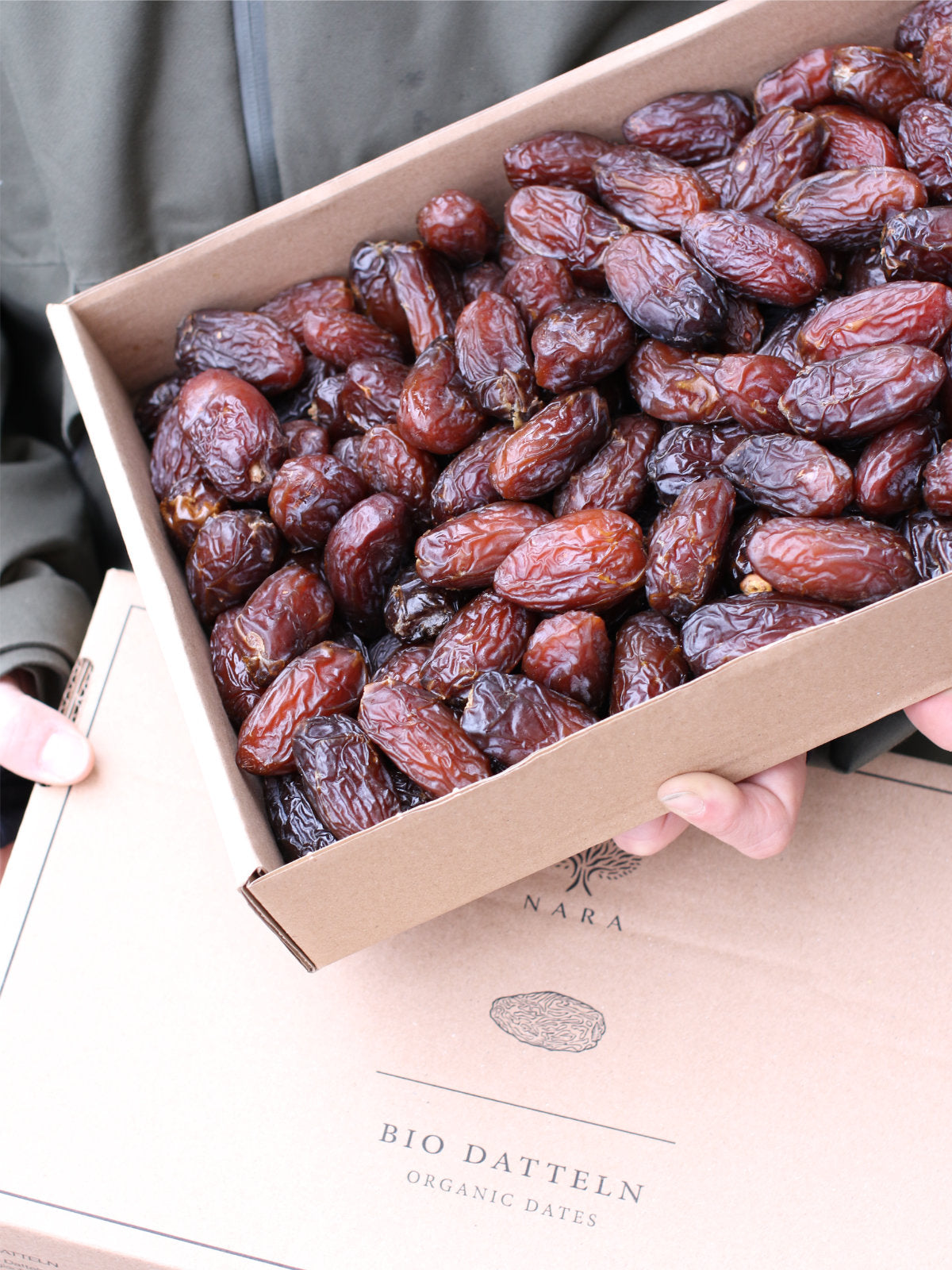
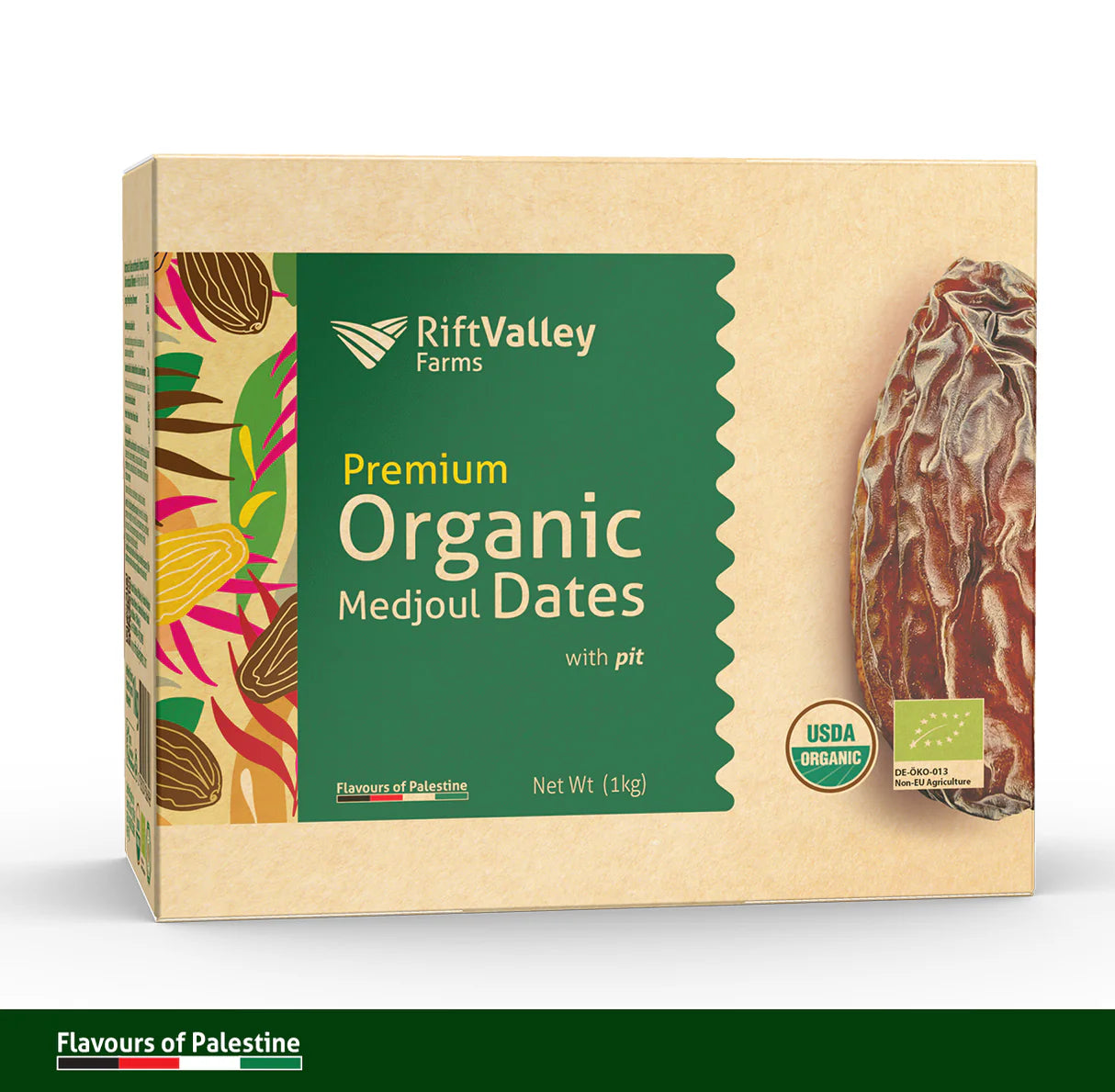
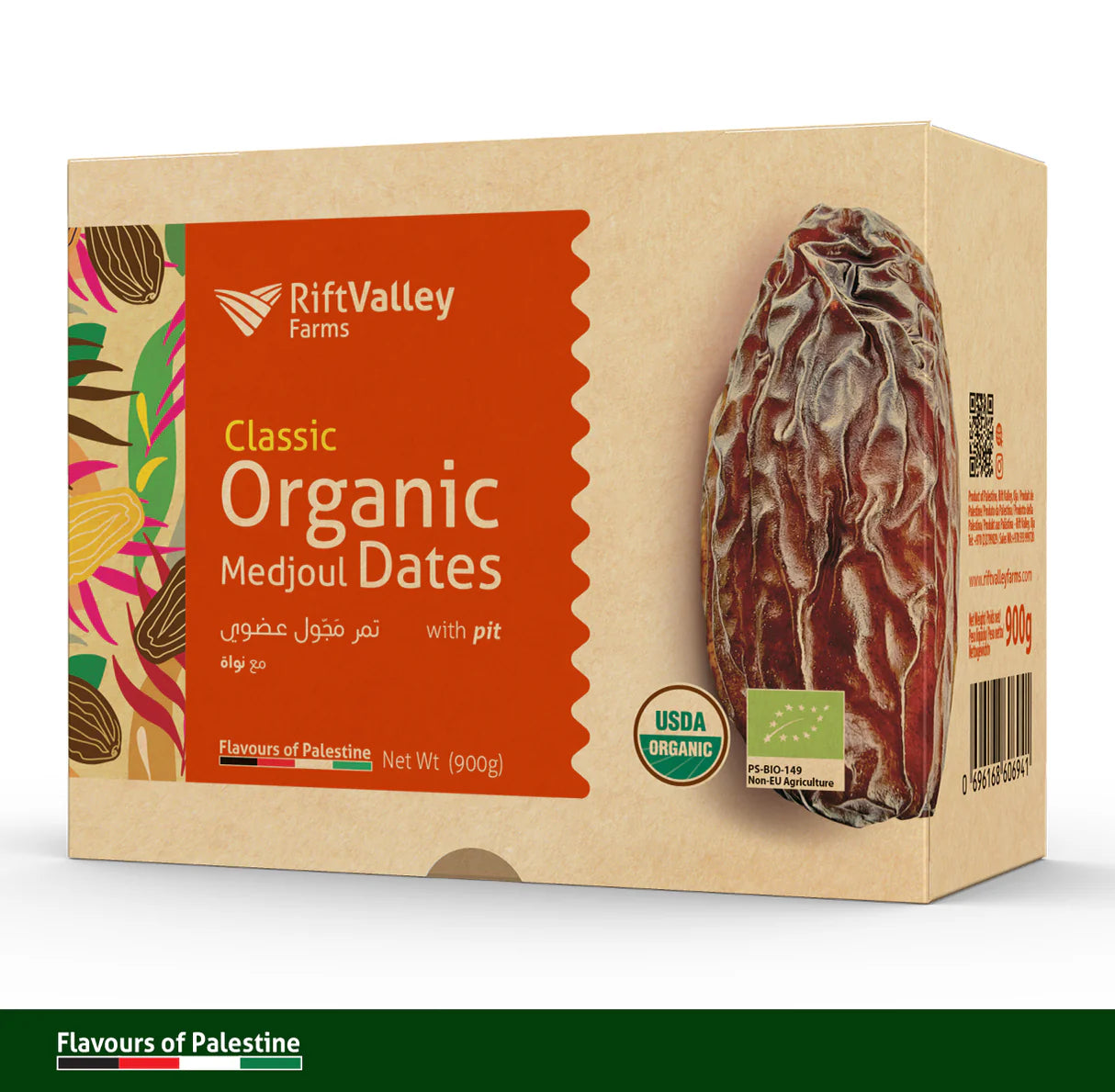
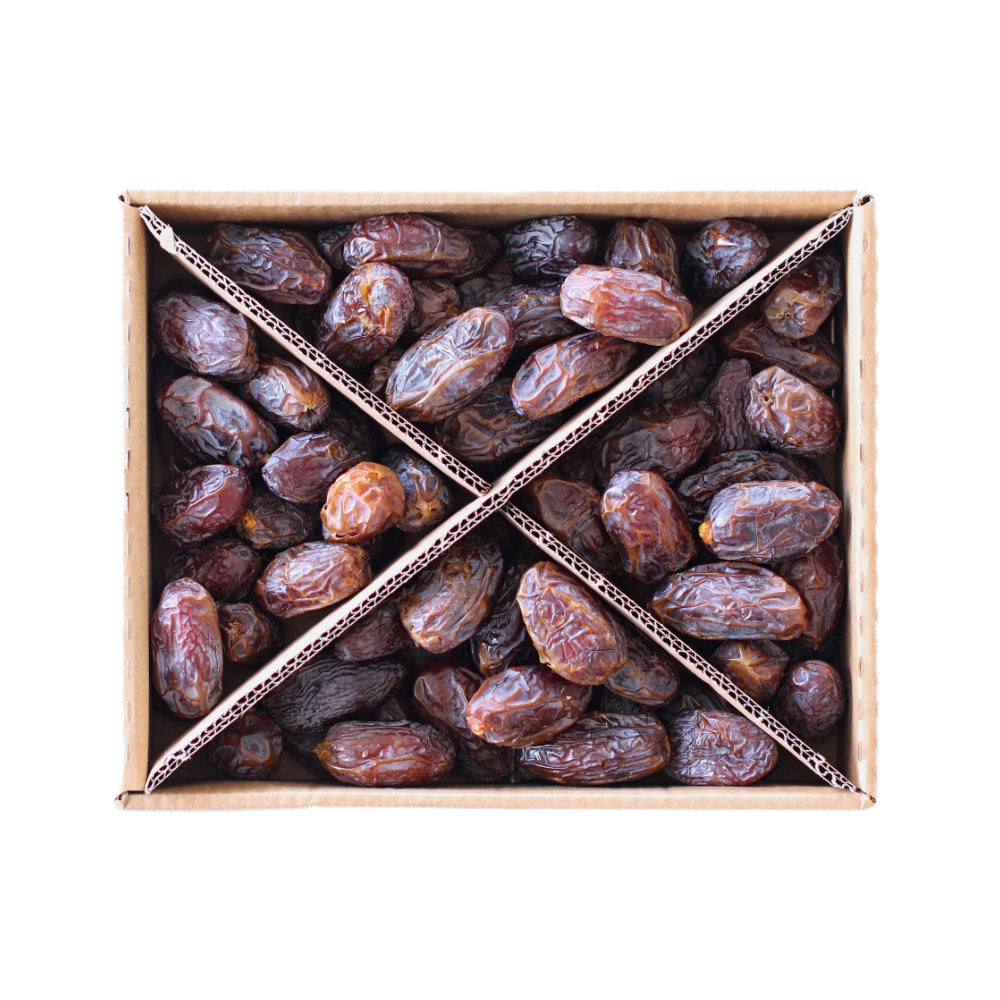
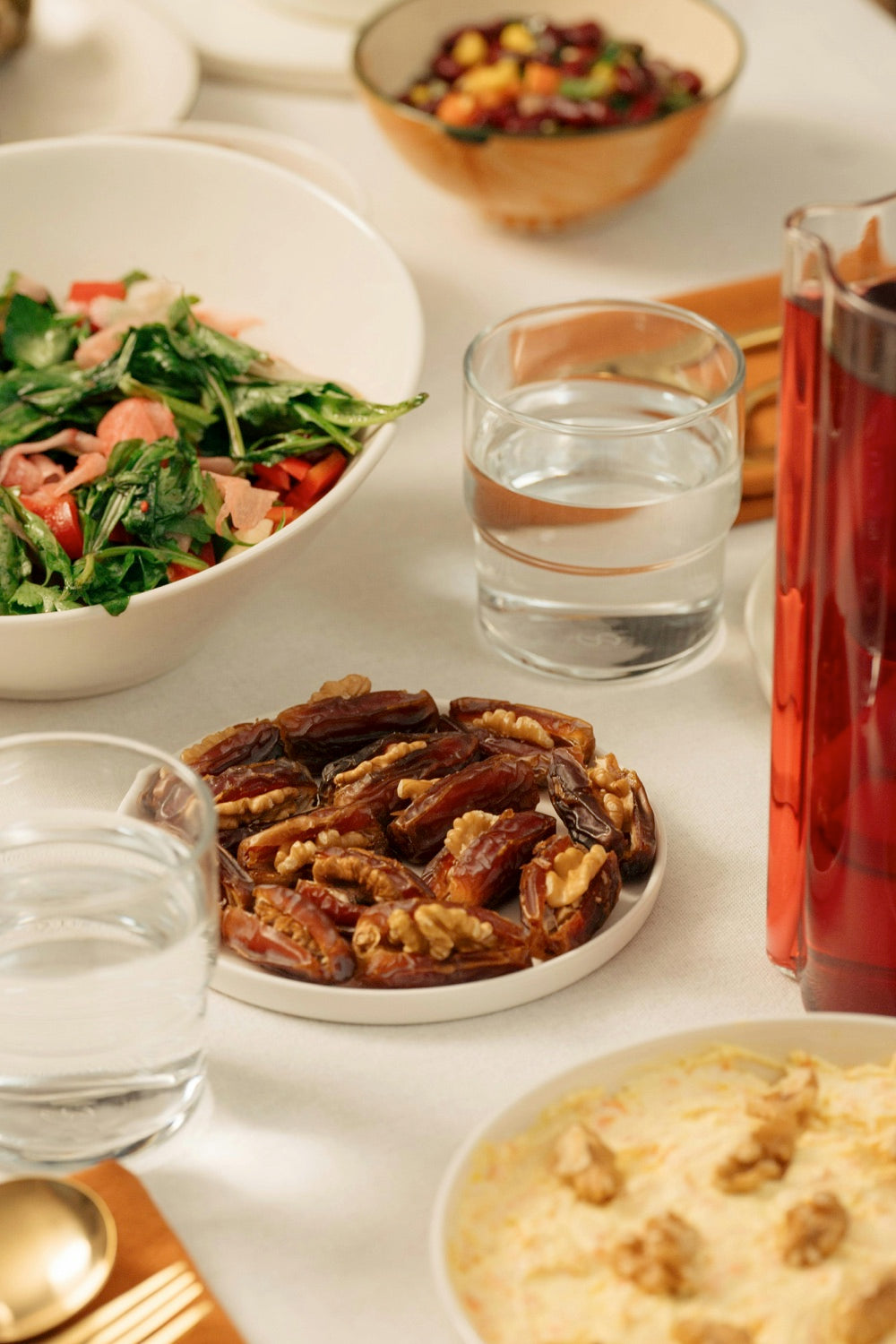
Medjool organic dates
- Country of origin: Israel, Palestine, Jordan, and Saudi Arabia
- Taste: caramelly, sweet, and fruity
- Consistency: soft and juicy
- Storage: Refrigerator
- Inspiration: Replenish energy reserves, combine with nuts, fresh salads
Fresh Medjool dates in the best organic quality
The Medjool date is also known as the queen of dates. The large fruit is sweet, soft and fleshy and will be remembered by almost everyone after a taste. In salads and other dishes, it refines the taste with its subtle sweetness. It is also wonderful with coffee and tea, in smoothies or as a snack between meals. There are several different spellings for this date, such as Medjool, Medjol, Medjoul or Medjuul. However, it is always the same soft, delicately sweet date. You can order these dates in our online store and buy Medjool dates from us, among many other date varieties. We offer Medjool dates from different countries of origin and in different varieties. All of our Medjool dates come from certified organic farms.
Where do our Medjool organic dates come from?
The Medjool variety originates from the fertile valleys in the south of Morocco. However, Morocco is by no means the only growing region for this date variety today. Over 100 years ago, the Medjool date first arrived in California, where the fruit was already very popular at the time. With the immigration of Jewish citizens to Israel, the fruit came to the Middle East for the first time. Date palms were cultivated on both sides of the Jordan Valley. Today, the Medjool variety can be found in almost all date-growing regions, including Israel, Jordan, the USA, Mexico, Saudi Arabia, Namibia and several others. We also source Medjool dates from various farms - from Israel, Palestine, Saudi Arabia and Jordan. You can therefore buy Medjool dates from different countries of origin from us online.
Medjool dates in different varieties
In addition to a selection of different countries of origin, you can also choose between several quality levels when buying this variety. After harvesting, the dates are sorted by size on the farms and categorized as"small","medium","large" and"jumbo". Dates in the "jumbo" size are by far the largest and therefore also have the richest flesh. Often, the larger the dates, the softer and fleshier they are.
Apart from the size, there is another quality feature that plays a role with Medjool dates: the"skin separation". Skin separation refers to the separation of the skin from the flesh of the date. Medjool dates that have a higher proportion of skin separation are labeled"Choice" and sold at a slightly lower price.
The origin also makes quite a big difference in some cases. Medjool dates from Saudi Arabia, for example, have a different flesh structure to those from Israel, Palestine or Jordan. Saudi Medjool dates are an "older" version of the variety, the flesh of which can be slightly more fibrous.
Fresh, soft and sweet: that's how we love our Medjool dates
Among the hundreds of different varieties of dates, this date is probably one of the best known, not least because of its size and natural sweetness. When you think of dates, you usually think of dried fruit first and foremost. Medjool dates, however, are juicy, fresh dates that are cleaned, sorted and finally packaged after harvesting - a purely natural product in raw food quality. When they are harvested, the fruits still contain around 20% water and are not artificially dried any further. The longer they are stored, the less water they contain and the dates become a little drier, but do not lose any of their flavor.
Growing, caring for and finally harvesting Medjool dates is a very labor-intensive process. It usually takes seven years for a date palm to bear fruit. This is why farmers affectionately refer to the areas where date palms are grown as date groves or date gardens. The useful life of the palms is around 80 - 100 years. In 1963, around two thousand year old date seeds were found during excavations in the Masada fortress. Researchers were able to grow one of the seeds in 2005. The plant is now known as the Judean date palm and is the record holder for age-related germination.
Dates with natural sweetness
Dates have a high sugar content. This ensures a quick and constant supply of energy, making them ideal for endurance and strength athletes. The glucose and fructose contained in the fruit cause blood sugar levels to rise only slowly, but are very easy to digest. Despite their high sugar content, dates are not fattening. They contain significantly fewer calories than sweets, but are much healthier. The carbohydrates promote concentration and boost the mind and soul. Dates can therefore help mental workers such as office workers, pupils and students with mental work.
Nutrients of the Medjool date
Dates are rich in minerals, such as
- calcium
- copper
- manganese
- potassium
- magnesium
- iron
- phosphorus
- zinc and vitamin A, B-complex and vitamin C.
In addition, fresh dates are soft and easy to digest, but also an energy booster due to their high fructose and dextrose content.
100g dates contain
- 1.81g protein
- 0.15g fat
- 74.97g carbohydrates
- 6.7g fiber
- 63g fructose
This corresponds to 277 Kcal. No wonder the Bedouins have a balanced diet. They can survive for months on water and dates without suffering from a deficiency. For this reason, sweet dates are highly valued in their countries of origin. When you enter an Arab house, you are greeted with fresh dates and a glass of water, which underlines the importance and quality of dates for the people.
What are the ingredients good for?
The magnesium in dates helps with pain and swelling. Dates are particularly helpful for muscle pain such as sore muscles. Eating a date before and after sport can give you new energy for sport and shorten the recovery time after sport. Dates also have an antibacterial and anti-inflammatory effect. The large amount of vitamin A in dates is particularly good for our eyes. Dates also contain the nutrients lutein and zeaxanthin, which help the eyes to filter out harmful UV rays and help to reduce eye fatigue.
What are dates used for?
Our dates can of course be enjoyed simply as a snack or raw food product, but their soft flesh and size also make them suitable for all kinds of other recipes. Medjool dates, for example, are ideal for stuffing. Simply cut the date lengthwise, remove the stone and then fill the fruit with cream cheese or parmesan, pistachios, walnuts or a mocha cream, depending on your preference. There are no limits to your creativity! You can buy our dates online or in selected delicatessens and organic stores. Our Medjool dates are freshly harvested and can be stored in a cool place at +2°C for up to 2 years from harvest.
Average nutritional values per 100g
- Energy 1189,00 kj / 284 kcal
- Fat
- of which saturated fatty acids
- Carbohydrates
- of which sugar
- Protein
- Salt
Country of origin: Israel
Recipes with our dates

Orientalischer Reis mit Datteln, karamellisierten Zwiebeln, Rosinen und Pistazien
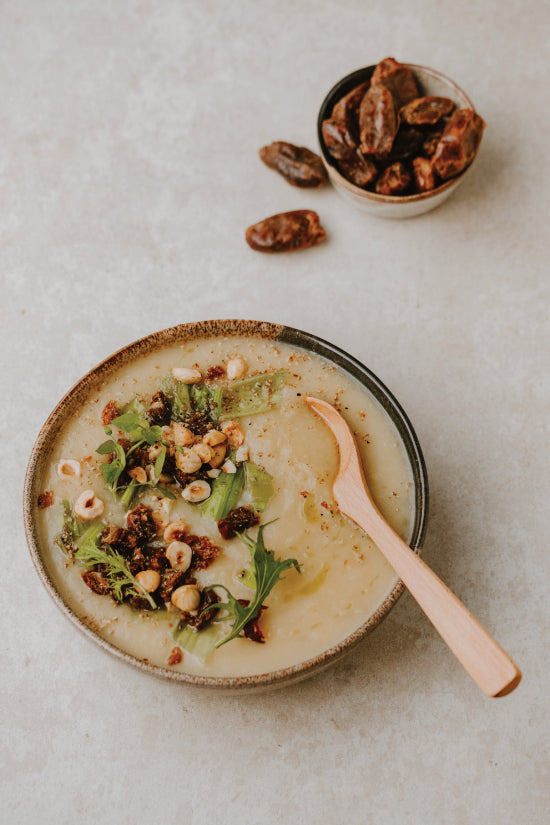
Kartoffel-Lauch Suppe: Rezept mit Dattel-Nuss-Topping
